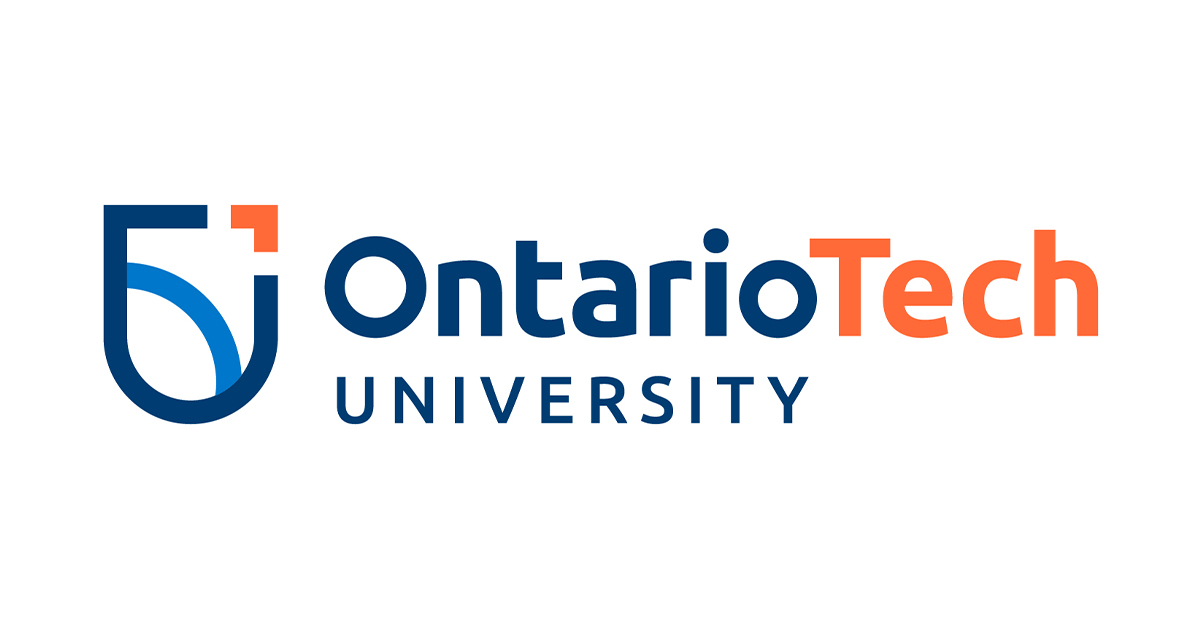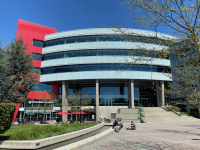
Available Master's Degree in ONTARITECH UNIVERSITY, Oshawa, CANADA
The institution was founded in 2002 as the University of Ontario Institute of Technology (UOIT) and is still legally known by that name. In its first decade of operation, the university developed its main campus with the construction of several new buildings. In 2011, the university opened its secondary campus in downtown Oshawa. In 2018, the university was rebranded as Ontario Tech University.
Prepare your application
At this stage of the application process you should:
- Find a supervisor (for research and project-based programs). Please make reference to a potential supervisor in your application for admission.
- Complete any necessary tests or exams such as English proficiency tests or GRE exam.
- Contact your referees.
- Gather all of the required documentation necessary to complete your application.
Please review the checklist below for specific requirements.
Unnecessary documents, including extra letters of recommendation, will not be added to your file. Any extra documentation will be discarded and will delay the processing of your file.
Checklist of required documents for application
- Two letters of recommendation (please note: some programs require three letters of recommendation. See individual program pages for requirements.)
- Proof of English language proficiency
- One unofficial transcript of each previous undergraduate and graduate transcript
- One- to two-page statement of academic intent
- Photocopy of your degree parchment(s)
- Any required program-specific documentation (see individual program pages)
Note: Applicants who have completed post-secondary studies in India and/or Pakistan are required to submit detailed, certified semester mark sheets. Applicants who have completed their studies in China are required to submit both a copy of their bachelor degree parchment and a copy of their graduation certificate.
Other documents
Applicants who receive an offer of admission will be required to submit official transcripts and show proof of citizenship.
Statement of academic intent
A one- to two-page statement of academic intent outlining objectives in undertaking graduate study must be submitted through the MyOntarioTech applicant portal. You may describe career aspirations/plans, specific research interests (if known), and experience relevant to your interests. If a potential thesis supervisor has been contacted, they must be identified in your statement of academic intent. Please refer to the individual program pages for any program-specific guidelines that may be required for the content of your statement of academic intent.
English language proficiency
All applicants are required to give evidence of their oral and written proficiency in English. Applicants who meet all admission requirements, including English proficiency, at the time of application will be given first priority consideration. We encourage applicants to register for an English language proficiency test prior to the application deadline.
| IELTS |
6.5 (7 for programs in Health Sciences, MA in Education, EdD, MBAI or MFDA) The School of Graduate and Postdoctoral Studies (SGPS) only accepts IELTS scores in the Academic testing format. Scores from the IELTS General Training format will not be accepted. |
| TOEFL (Internet-based) |
83 to 87 (92 to 93 for programs in Health Sciences, MA in Education, or EdD) MyBest scores or superscores are not accepted. Only the most recent TOEFL score will be considered. |
Master Program Offered:
- Automotive Engineering (MEng only)
- Business Analytics and AI (MBAI)
- Education (Master's of Education)
- Electrical and Computer Engineering (MEng only)
- Engineering Management (Master's program)
- Financial Data Analytics (MFDA)
- Information Technology Security (MITS)
- Mechanical Engineering (MEng only)
- Nuclear Engineering (MEng only)
- Software Engineering (MEng only)
Automotive Engineering : Master of Engineering (MEng) programs in Automotive Engineering provide students with a detailed understanding of advanced technologies and processes related to automotive systems. These programs allow students to study all of the main areas associated with automotive systems. These areas include scientific principles, analysis techniques and design methodologies. The programs are also designed to provide students with the broad and advanced education necessary for productive careers in the public or private sectors, as well as in academia. Students develop skills necessary for clear communication and responsible teamwork and to inspire professional attitudes and ethics. This prepares them for modern work environments and lifelong learning.
Business Analytics and AI (MBAI): The Master of Business Analytics and Artificial Intelligence (MBAI) program will provide students with insight in three main domains -applications of AI, Business Analytics and Management issues. Designed for graduates of Commerce or Business undergraduate degrees, this course-based professional Master's program builds upon the core functional knowledge learned at the undergraduate level with a focus on advanced analytics and AI solutions to business problems.
Education (Master's of Education): The Master of Education (MEd) is unique and at the leading edge in both its objectives and approaches to learning online. The program addresses the most recent issues involving digital technology, leadership, curriculum and adult education. Collaborative learning, co-construction of knowledge, peer tutoring and personalization are key approaches used in this program by professors with diverse research backgrounds in educational technology.
Electrical and Computer Engineering : The Master of Applied Science (MASc) and Master of Engineering (MEng) programs in Electrical and Computer Engineering allow a student to study in all major areas associated with electrical, computer and software systems engineering. These areas include electronics, intelligent systems, communications, control, biomedical, power electronics, power generation, software engineering, mobile systems and embedded software systems. These disciplines are expected to be in high demand by employers.
Engineering Management (Master's program): The Master of Engineering Management (MEngM) program allows students to study topics in planning, allocating resources, and directing and controlling activities that have an engineering or technological component. Students will also learn to apply engineering principles in organizing and directing technical projects and how to manage the people within them.
Financial Data Analytics (MFDA): Aimed at working professionals, this unique graduate program trains students in both finance and related data analytic skills and is suitable for business graduates with or without an advanced mathematics background. Applicants to the MFDA can be from a variety of educational backgrounds, from business, economics and finance, to mathematics, computer science, information technology and other quantitative areas.
Information Technology Security (MITS): The Master of Information Technology Security (MITS) program is a graduate professional program that prepares individuals to work in the high-demand IT security industry. The program adopts a project method that provides students with the experience to apply core course materials to a substantial project in the workplace during the latter part of the program.
Mechanical Engineering : The Master of Applied Science (MASc) and Master of Engineering (MEng) programs in Mechanical Engineering allow a student to study all of the main areas associated with mechanical engineering. In addition, the programs feature three primary fields of study in which students can focus and address key technical areas of the future that are expected to be in high demand by employers: Design, Energy and Thermofluids Engineering, and Mechatronics and Manufacturing Engineering. Please see below for further details regarding the fields of study.
Nuclear Engineering : The Master's programs in Nuclear Engineering prepare graduates to be competent in a wide range of disciplines that impinge on the safe and reliable operation of the many and varied systems that comprise radiological equipment, nuclear power plants and related facilities. Graduates will understand the complex interrelationships between humans, non-human biota, and the physical, chemical, economic and social components of the environment. The program provides the depth and breadth of knowledge necessary for practicing professionals in nuclear engineering.
Software Engineering: The Master of Applied Science (MASc) and Master of Engineering (MEng) programs in Software Engineering expand students' knowledge of software engineering through intensive state-of-the-art courses, projects, and/or a research thesis in their chosen area of interest. Software engineering focuses on the development and use of rigorous methods for designing and constructing software artifacts that will reliably perform specified tasks. Courses in these programs are designed to give students in-depth learning in software engineering, and opportunities for advanced development of skills such as communication, teamwork and leadership, as well as participate in scholarly activities of research, seminars and presentations.
For Admission Contact:
Admission Team @ Make Study,
Email: admission@makestudy.com, agents@makestudy.com
CALL: +91 96581 96851








